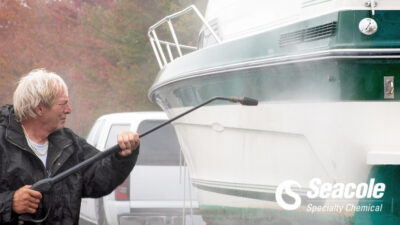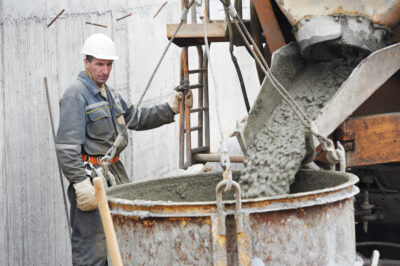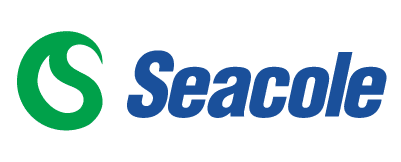Earlier this month, we shared how titration testing often solves poor-quality parts cleaning. But sometimes, parts cleaning operations continue to produce poor work even after you’ve recalibrated the concentration of your detergent. You’ve checked concentration and are running your bath hotter and longer and your parts still aren’t clean. What’s your next step?
In our experience, if you’ve accounted for concentration, temperature, and time and you’re confident your equipment is in working order, it’s time to see if ancillary chemistries may help improve your parts cleaning process. Bath additives can help you tackle three remaining issues that may be producing poor-quality work: tough soils, synthetic greases and oils, and environmental conditions.
Removing Tough Soils
Parts such as locomotive engine heads and engine blocks produce tough soils. These parts run so hot that paint and soils are baked on. You can remove excess or heavy carbon-based soils with a quality surfactant. Spraydet Turbo Charge is non-VOC and can remove carbon deposits, mill oils, heavy greases and lubricants, and other tough soils. While it’s tough on grime, Turbo Charge will not damage the base metal of your parts or leave a residue behind.
Reducing Foam and Bubbles
The formation of bubbles is usually associated with cleaning. But adding complex detergents to a washer before it reaches the correct operating temperature can lead to excessive foaming and even washer overflows. Defoamers are designed to work with all sorts of different types of soils, including synthetic lubricants. One of our favorites is Defoamer O, a highly concentrated, non-silicone defoamer. It works well in systems that have excess foaming or a buildup of soils.
Accounting for Environmental Conditions
Adverse environmental conditions or delays in the processing of parts following the cleaning step can lead to the formation of flash rust and corrosion on your parts. Add a corrosion inhibitor to your bath to prevent rust forming on your parts. 571 Rust Inhibitor works well for short-term corrosion resistance, while 577 Rust Inhibitor is ideal for long-term applications.
Lastly, consider the environmental conditions within your parts cleaning equipment. Is foam, scale build-up and grime gunking up your process? Clean-out chemistries clean out your actual parts washer. Over time, wash equipment can build up layers of scale from hard water, excess detergent and soils, and start to rust. Customers often see build up and corrosion in the nooks and crannies of their equipment. Running a non-acid wash like Spraydet 131 through the equipment periodically helps strip these contaminants and help maintain the efficiencies and appearance of your equipment.
If adjusting detergent concentration, temperature, and time is not improving the quality of your parts cleaning operation, it’s time to consider ancillary chemistries. Seacole’s technical department and sales team works with you to create a custom solution for your specific soils and process. Contact the Seacole team today for expert help.





